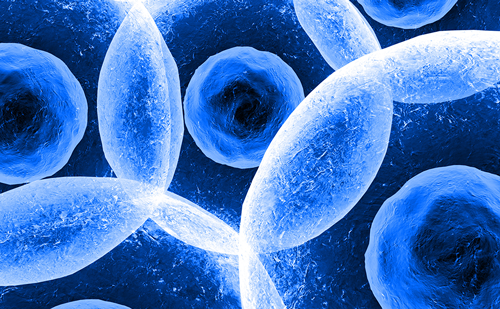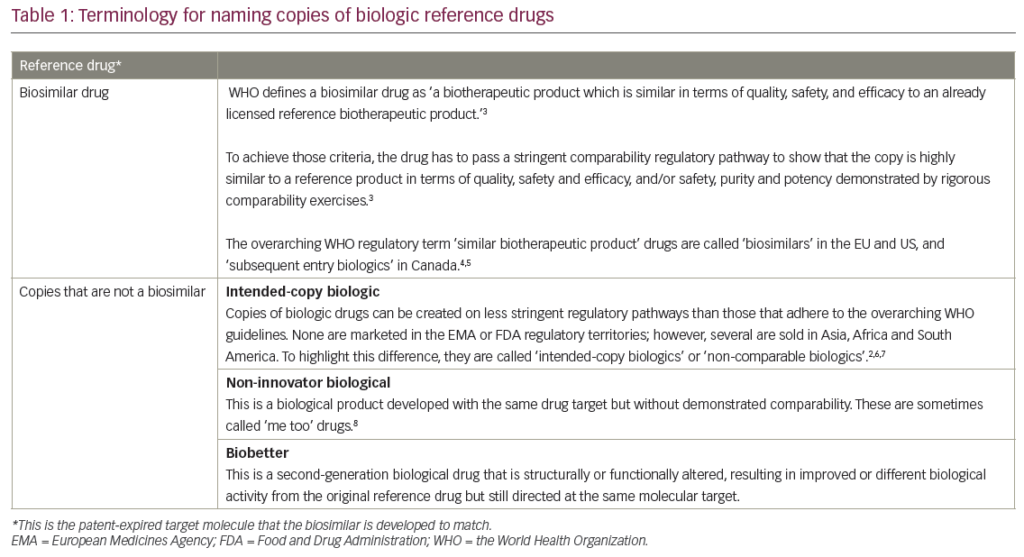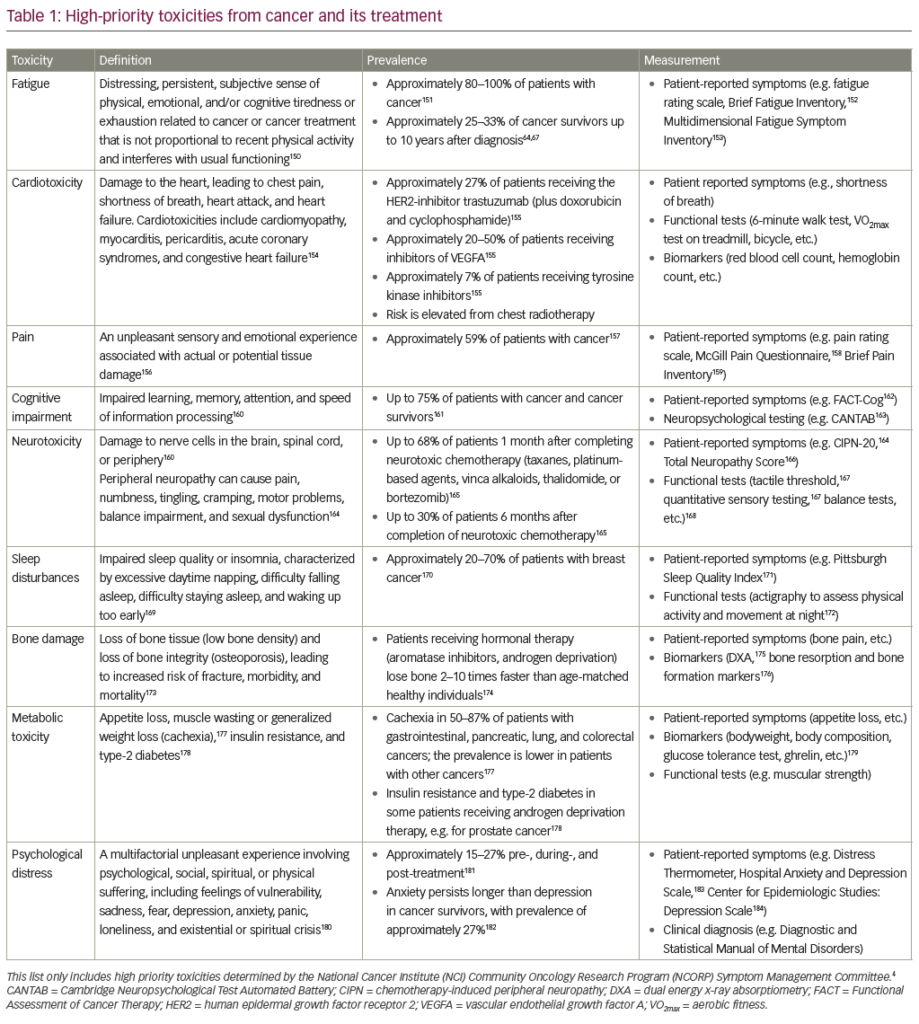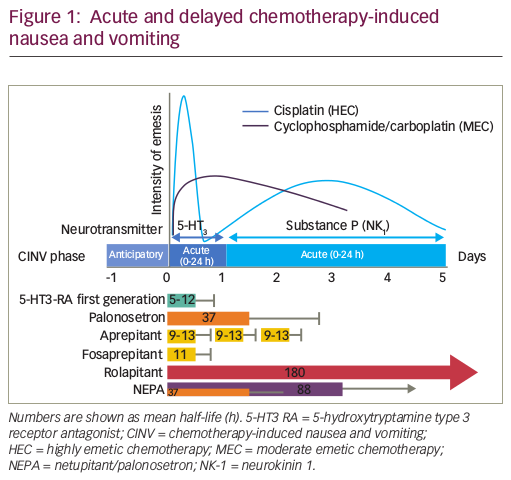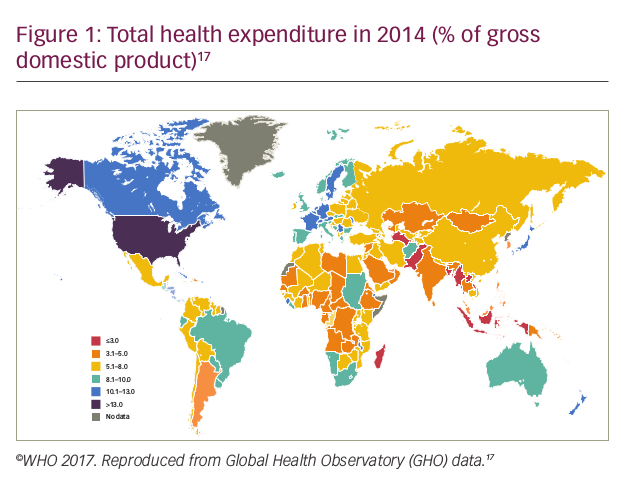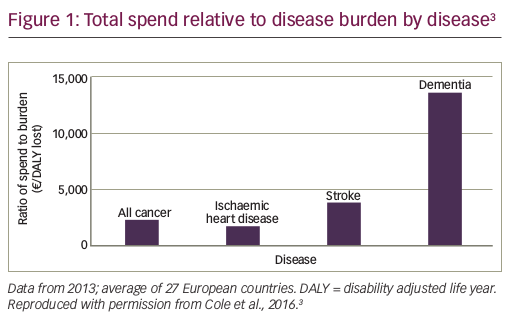The presence of this condition can be emotionally distressing to the patient and family. Although options do exist to stimulate appetite, prevent further weight loss, and even at times cause weight gain, such measures do not improve survival or global quality of life. In addition, patients who suffer from this syndrome do not appear to benefit from nutritional supplementation. Therefore, optimal management of this syndrome requires some degree of understanding of its prognostic implications and pathophysiology, and entails appropriate counseling of patients before prescribing dietary counseling or pharmacological interventions.
Prevalence and Prognostic Implications
The prevalence of anorexia and weight loss in most oncology practices is quite high. Tchekmedyian and others explored the prevalence of cancer-associated weight loss and anorexia in an out-patient oncology setting.2 Over half of the 644 ambulatory oncology patients who were surveyed suffered from a failing appetite, decreased oral intake, or weight loss of greater than 5% pre-morbid weight.These prevalence rates may be even higher if one surveys non-ambulatory patients with late-stage disease.
In addition to being prevalent, this syndrome is associated with a poor prognosis. In a multiinstitutional, retrospective assessment of 3,047 cancer patients from 12 clinical trials, loss of more than 5% of pre-illness weight was associated with a shortened survival.3 This predictive capability of weight loss occurred independently of stage of disease, tumor histology, and performance status.There was also a trend towards lower rates of tumor response with chemotherapy in patients with weight loss. Further data have suggested that emaciation may be a direct cause of death. In a retrospective study of autopsies in 486 cancer patients, a wasted, emaciated state was the only identifiable cause of death in 1% of the patients.4
Pathophysiology of Cancer – related Anorexia and Weight Loss
Reduced Caloric In take
Poor oral intake contributes to the weight loss observed in cancer patients. In one study of lung cancer patients, it was demonstrated that caloric intake was significantly lower (approximately 300kcal/day) in weight-losing patients than in patients who did not experience weight loss.5 The decreased nutrient intake and resulting weight loss can be attributed to a variety of factors, including alterations in taste and smell; chemotherapyor radiation-induced anorexia, esophagitis, nausea, and vomiting; decreased oral intake secondary to dysphagia or abdominal pain; and early satiety due to an abdominal mass, ascites, or splenic enlargement. Malabsorption resulting from tumor involvement of the gastrointestinal tract or prior intestinal resection may also contribute to weight loss.
Alterations in Basal Energy Expenditure and Body Composition
Decreased caloric intake alone does not account for the profound weight loss observed in cancer patients. Superimposed on insufficient oral intake are complicated metabolic abnormalities that lead to an increase in basal energy expenditure, which results in an energy imbalance with subsequent weight loss.6 Elevations in basal energy expenditure have been observed in patients with lung cancer – even those with early-stage cancer7 – blood malignancies, and sarcomas.5,8,9 In one series of 100 patients with newly diagnosed lung cancer, 74% had elevations in basal energy expenditure.5 This finding is in contrast to what occurs in a starving state, where basal energy expenditure drops with food deprivation.
The changes observed in basal energy expenditure underscore the fact that cancer-associated weight loss, characterized by a disproportionate loss of lean tissue, is a distinct entity from starvation. In a study of 50 cancer patients, Cohn and others assessed body composition with a variety of sophisticated techniques and compared results with those observed in age- and sexmatched controls.11 Weight-losing cancer patients appeared to have lost both fat and lean tissue, but the loss of lean body tissue, particularly skeletal muscle, was the more striking feature. This pattern is in contrast to starvation, in which fat is lost and lean tissue is better preserved.10 In addition, only starvation – not cancerrelated cachexia – can be reversed with caloric supplementation.12
Alterations in Nutrient Metabolism
Changes in nutrient metabolism may play a role in cancer-related anorexia and weight loss. Many patients have a variety of metabolic abnormalities such as hyperglycemia, hypertriglyceridemia, and an exaggerated insulin response to glucose load.13 These changes may result from increased cytokine release in the setting of malignancy.14,15 Protein metabolism is altered as well, with increased protein breakdown resulting in enhanced amino acid release from skeletal muscle, despite the underlying reduction in muscle mass.16
The Role of Cytokines and Other Mediators
A number of studies have focused on the mechanisms underlying the metabolic changes observed in cancerrelated anorexia and weight loss. Based on these studies, there may be an important role for cytokines as well as several tumor-derived substances. Multiple inflammatory cytokines have been implicated, including tumor necrosis factor-alpha (TNF-?), interleukin (IL)-1 beta, and IL-6.17 These cytokines have been shown to increase basal energy expenditure18,19 and induce anorexia.20,21 Studies provide conflicting data as to whether an elevation in serum cytokines occurs in cancer-related anorexia/weight loss.A recent study from the North Central Cancer Treatment Group found that serum cytokines were not reliable correlates of weight loss or anorexia.22 However, in another study of 87 patients with non-small cell lung cancer, 26 had lost more than 10% of their pre-morbid weight, and those patients with weight loss had significantly higher plasma concentrations of soluble TNF receptor 55, IL-6, Creactive protein, and other adhesion molecules.23 A few recent studies among weight-losing cancer patients have detected elevations in serum and peripheral blood mononuclear cell cytokine concentrations, especially TNF-? and IL-6.24–26
In addition to the above cytokines, there appears to be a role for a tumor-produced lipid-mobilizing factor (LMF) in the syndrome of cancer-related anorexia and weight loss. This substance may contribute to the wasting of fat tissue27 that is observed in cancer patients in addition to the previously mentioned wasting of lean body mass. It has been postulated that LMF acts to sensitize adipose tissue to lipolytic stimuli by increasing cyclic AMP production in adipocytes.28,29
Further data have suggested that the ATP–ubiquitin– proteasome pathway plays an important role in cancerassociated tissue wasting. This pathway has been proposed to be the final common pathway mediating protein degradation in lean tissue wasting.30 However, recent, unpublished preliminary data from the North Central Cancer Treatment Group failed to observe a notable improvement in weight with the use of bortezomib, a recently approved proteasome inhibitor, in patients with pancreatic cancer.
Management of Cancer-related Anorexia and Weight Loss
Although caloric supplementation may benefit a small subgroup of cancer patients, such as head and neck cancer patients undergoing radiation treatment or patients undergoing stem cell/bone marrow transplant, nutritional supplementation is not recommended for the majority of patients with cancer-related weight loss. Considering the increased protein catabolism, it is not surprising that most patients with cancer-related anorexia and weight loss do not benefit from nutritional supplementation. For this reason, management of cancer-related anorexia and weight loss is targeted at particular aspects of this syndrome. Current pharmacological agents can be divided into three categories: orexigenic agents (appetite stimulants), anti-catabolic (anti-metabolic and anti-cytokine) agents, and anabolic agents (primarily hormonal).
Appetite Stimulants
In a survey of 1,000 patients with advanced cancer, anorexia was one of the most common adverse symptoms reported.31 Although several clinical trials have failed to demonstrate improvement in survival or global quality of life with treatment of anorexia, attempting to palliate anorexia is still reasonable when one considers that this is an emotionally stressful symptom for patients and their families.32
Progestational agents, such as megestrol acetate and medroxyprogesterone, have been shown to improve appetite in advanced cancer patients. Of 15 published placebo-controlled trials of megestrol acetate, 13 showed improvement in appetite in cancer patients.The main side effects of megestrol acetate are a slight increase in risk of thrombophlebitis as well as occult suppression of the pituitary–adrenal axis. The oral suspension of megestrol acetate can be started at 400mg/day and increased to 600–800mg/day as needed.There does not appear to be additional benefit to higher doses.33
Corticosteroids have also shown success in appetite stimulation. In 1974, in the first randomized, placebocontrolled trial for anorexia in cancer patients, Moertel and others showed that dexamethasone was able to alleviate this symptom on a short-term basis.34 Prednisolone and methylprednisolone have been shown to be effective as well.35,36 A reasonable starting dose of dexamethasone is 4mg/day.
Cyproheptadine has been studied for treatment of anorexia, but in clinical trials was inferior to megestrol acetate.The one exception is the use of cyproheptadine in carcinoid syndrome, as the drug has shown success in alleviating anorexia in this particular group of patients. Anti-catabolic Agents
Given the suspected role for a variety of cytokines and other tumor-related mediators in cancer-related anorexia and weight loss, several agents that modify these mediators have been evaluated.
Eicosapentaenoic acid (EPA) is an alpha-3 omega fatty acid derived from fish oil. In vitro studies have shown that EPA can attenuate the stimulation of adenylate cyclase activity and lipolysis produced by tumor-derived LMF.29 Although initial studies with EPA were encouraging, other, larger phase III trials have not shown similar success.37 Further studies with EPA continue, however. Thalidomide, a potent inhibitor of TNF-? production, may help control weight loss in cancer patients. In a preliminary report of 37 patients with metastatic cancer and weight loss, thalidomide at a dose of 100mg per day decreased nausea, improved appetite, and increased caloric intake.38 In an open-label study of 10 patients with advanced esophageal cancer, thalidomide (200mg per day) was observed to attenuate further loss of weight and lean body mass.39 Larger studies of thalidomide are required to confirm benefit.
Pentoxifylline (inhibitor of TNF-? production) and hydrazine sulfate (inhibitor of phosphoenolpyruvate kinase) have also been evaluated but thus far have failed to show improvement in cancer-related anorexia and weight loss.
Anabolic Agents
Anabolic steroids such as oxandrolone and fluoxymesterone have been studied as well.These agents are thought to increase lean tissue mass by means of their ability to increase muscle protein synthesis and by their nitrogen-sparing effects.40 A study from the North Central Cancer Treatment Group found fluoxymesterone disappointing. In contrast, oxandrolone, which has potent anabolic effects with less androgenic activity than other steroids, may be more promising, as suggested by preliminary studies. In an open label study involving 131 cancer patients treated with 20mg of oxandrolone daily for four months in conjunction with nutritional and exercise counseling, a subgroup of patients was able to maintain or gain body weight and lean tissue.41 Quality of life and performance status scores also improved in subgroups of patients. In a follow-up randomized, placebo-controlled study of 65 cancer patients with preexisting weight loss, use of oxandrolone at 10mg twicedaily for four months was associated with a mean gain in lean tissue weight compared with placebo (p=0.05).42 There was also a trend towards improved total body weight for those patients treated with oxandrolone. This drug is well tolerated, with the main side effects being a transient increase in liver enzymes and fluid retention.The publication of the final manuscripts that describe these studies in detail are eagerly awaited.
Miscellaneous Agents Under Evaluation
Several other therapies that have been tested in patients with cancer-related weight loss include adenosine triphosphate (ATP) infusions, melatonin, serotonin antagonists, and branched chain amino acids. However, further evaluations are needed to confirm the benefits of these agents.
Summary
The cancer-related anorexia/weight loss syndrome affects at least half of ambulatory cancer patients, and likely effects an even higher proportion of nonambulatory patients with advanced-stage disease. In addition to being distressful for both patients and their family members, this syndrome portends a poor outcome, may signal a decreased likelihood of response to chemotherapy, and may be a direct cause of death. The pathogenesis underlying the syndrome seems to be related to a systemic inflammatory response resulting in cytokine release, but the specifics of these mechanisms are still under investigation. Treatments to improve anorexia and stabilize or increase weight do exist, but their overall benefits in improving global quality of life and survival remain an issue of controversy. In addition, the emotional stress placed on patients to try to maintain nutrition and weight may adversely influence quality of life. Ultimately, a major aspect of management should involve an understanding of the syndrome and ideally an acceptance of the course and complications of advanced stage malignancies.



